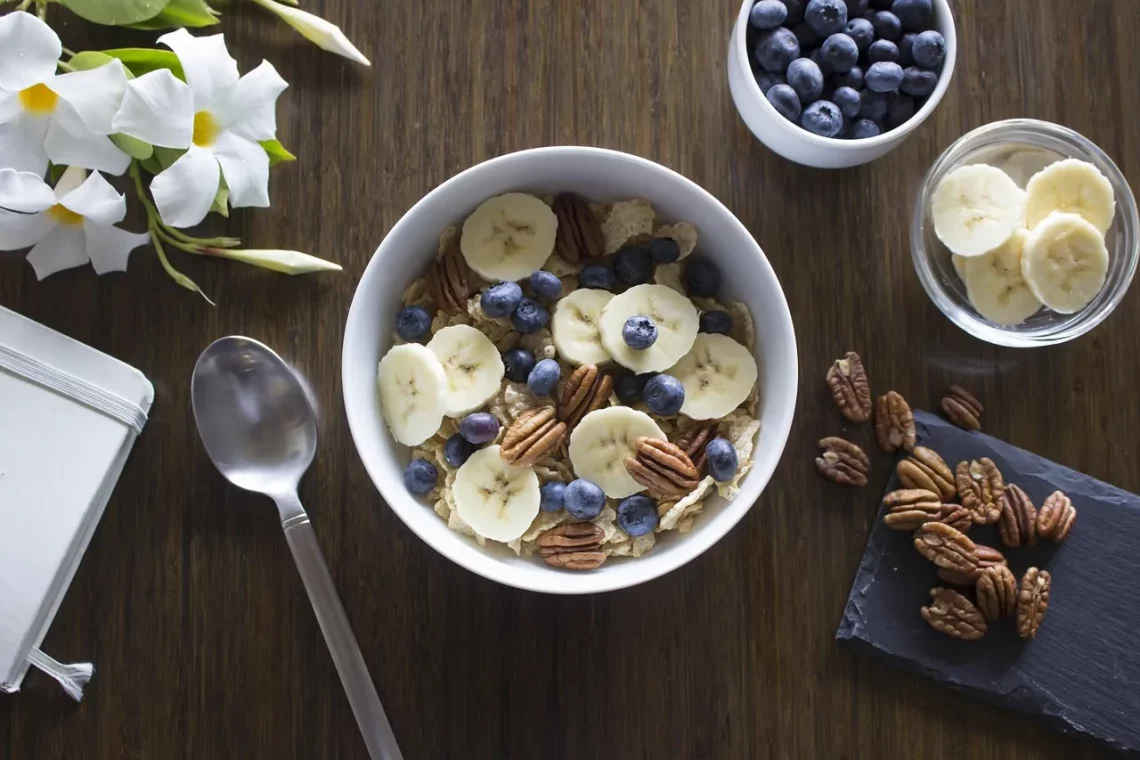
Top Cereals Rich in Iron for a Healthy Breakfast Boost
Breakfast is often hailed as the most important meal of the day, serving as a foundation for energy and productivity. As we wake up and prepare to take on the day, the nutritional choices we make can significantly impact our physical and mental well-being. Among these choices, cereals are a popular breakfast staple, known for their convenience and versatility.
However, not all cereals are created equal. Many commercial options are loaded with sugars and unhealthy additives, which can undermine the benefits of a hearty breakfast. Instead, opting for cereals that provide essential nutrients is crucial for maintaining a balanced diet. One such nutrient that often goes overlooked is iron, an essential mineral that plays a vital role in several bodily functions, including the transportation of oxygen in the blood and the support of a healthy immune system.
Incorporating iron-rich cereals into your breakfast can be an effective way to boost your iron intake, especially for those who may be at risk of deficiency, such as vegetarians, pregnant women, and individuals with certain health conditions. This article will explore some of the top cereals that not only offer a delicious start to the day but also pack a nutritional punch, making them excellent choices for a wholesome breakfast.
Exploring Iron in Breakfast Cereals
Iron is an essential mineral that our bodies require to function optimally. It plays a critical role in producing hemoglobin, a protein in red blood cells that carries oxygen throughout the body. Furthermore, iron is necessary for the proper functioning of muscles and the immune system. While there are various sources of iron, including meat and legumes, many people look for convenient ways to increase their intake, especially at breakfast.
Breakfast cereals can be a fantastic option for boosting iron levels, particularly those fortified with this vital nutrient. The process of fortification involves adding vitamins and minerals to food products to enhance their nutritional profile. Many manufacturers enrich their cereals with iron, making them a practical choice for individuals looking to improve their iron intake.
When selecting cereals, it’s essential to read the nutrition labels carefully. Look for options that offer at least 10% of the daily recommended intake of iron per serving. Additionally, consider pairing your cereal with foods rich in vitamin C, such as fruits, as this can enhance the absorption of non-heme iron, the type of iron commonly found in plant-based foods.
Not only do iron-rich cereals support overall health, but they can also be a part of a balanced breakfast routine. Combining cereals with other nutritious ingredients, such as nuts, seeds, and dairy or plant-based milk, can create a satisfying meal that keeps you energized throughout the morning.
Top Fortified Cereals for Iron
When it comes to choosing cereals that are high in iron, fortified options often take the lead. These cereals are designed specifically to provide essential nutrients, making them an easy choice for breakfast. Some of the most popular fortified cereals include:
1. **Total**: This cereal stands out due to its impressive iron content, boasting around 100% of the daily value per serving. Made from whole grains, it offers a crunchy texture and can be easily paired with fruits or yogurt.
2. **Special K**: Known for its light and crispy flakes, Special K provides a good source of iron while being relatively low in calories. It’s an excellent option for those looking to maintain a healthy weight without sacrificing nutrition.
3. **Frosted Mini-Wheats**: While often considered a sugary cereal, Frosted Mini-Wheats also deliver a decent amount of iron, thanks to their fortification. The whole grain base, combined with the fiber content, makes it a filling breakfast choice.
4. **Cheerios**: A classic breakfast option, Cheerios are not only heart-healthy but also fortified with iron. Their mild flavor makes them versatile for various toppings, from fruits to nuts.
5. **Raisin Bran**: This cereal combines bran flakes with raisins, providing a good source of fiber and iron. The natural sweetness of the raisins adds flavor without excessive sugar.
Choosing fortified cereals can help you meet your iron needs while enjoying a delicious breakfast. However, it’s essential to balance your diet with other iron sources, such as lean meats, leafy greens, and legumes, to ensure you get a well-rounded intake of this vital nutrient.
Whole Grain Cereals and Natural Iron Sources
In addition to fortified cereals, whole grain options can also provide a natural source of iron. Whole grains are rich in nutrients and fiber, making them a healthier alternative to refined grains. Some excellent whole grain cereals include:
1. **Oatmeal**: A breakfast classic, oatmeal is not only delicious but also packed with iron. It contains soluble fiber, which can help lower cholesterol levels and keep you feeling full longer. Top it with fruits, nuts, or a drizzle of honey for added flavor and nutrition.
2. **Barley**: This ancient grain is often overlooked but is an excellent source of iron. Barley can be cooked and eaten as a cereal or added to soups and salads for extra texture and nutrition.
3. **Quinoa**: While technically a seed, quinoa is often classified as a grain and is known for its high protein and iron content. Quinoa flakes can be used as a cereal, offering a nutty flavor and fluffy texture.
4. **Brown Rice**: Brown rice is a whole grain that provides iron along with other essential nutrients. It can be enjoyed as a breakfast bowl topped with fruits or nuts, adding a unique twist to your morning routine.
5. **Wheat Germ**: Rich in nutrients, wheat germ can be sprinkled on various breakfast cereals or blended into smoothies. It provides a concentrated source of iron and other vitamins.
Incorporating these whole grain cereals into your breakfast not only enhances your iron intake but also provides additional health benefits. The fiber in whole grains can aid digestion and promote a feeling of fullness, making them an excellent choice for those looking to manage their weight.
Tips for Maximizing Iron Absorption
While choosing iron-rich cereals is a great starting point, there are several strategies to maximize iron absorption from your breakfast. Implementing these tips can help ensure that your body effectively utilizes the iron you consume:
1. **Pair with Vitamin C**: Consuming foods high in vitamin C alongside iron-rich cereals can significantly enhance absorption. Citrus fruits, strawberries, bell peppers, and broccoli are excellent sources of vitamin C that can be easily added to your breakfast.
2. **Avoid Calcium with Iron**: Calcium can inhibit iron absorption, so it’s best to avoid dairy products or calcium-fortified beverages when eating iron-rich cereals. If you enjoy milk with your cereal, consider having it at a different time of day.
3. **Limit Phytate-Rich Foods**: Foods high in phytates, such as legumes and whole grains, can interfere with iron absorption. If you consume these foods, consider soaking or fermenting them to reduce phytate levels and improve iron availability.
4. **Cook with Cast Iron Cookware**: Cooking acidic foods in cast iron pans can increase the iron content of the food. While this may not directly apply to cereals, it’s a useful tip for other meals throughout the day.
5. **Be Mindful of Coffee and Tea**: The tannins in coffee and tea can also inhibit iron absorption. If you enjoy these beverages, try to consume them between meals rather than during breakfast.
By implementing these strategies, you can enhance the effectiveness of your breakfast choices and ensure that you’re getting the most out of your iron-rich cereals.
In conclusion, incorporating iron-rich cereals into your breakfast routine is a delicious and effective way to boost your iron intake. With options ranging from fortified cereals to whole grains, there are plenty of choices to suit your tastes and nutritional needs. Remember, maintaining a balanced diet and considering other iron sources will help you achieve optimal health.
**Disclaimer**: This article is for informational purposes only and does not constitute medical advice. If you have health concerns or dietary restrictions, please consult with a healthcare professional for personalized guidance.




